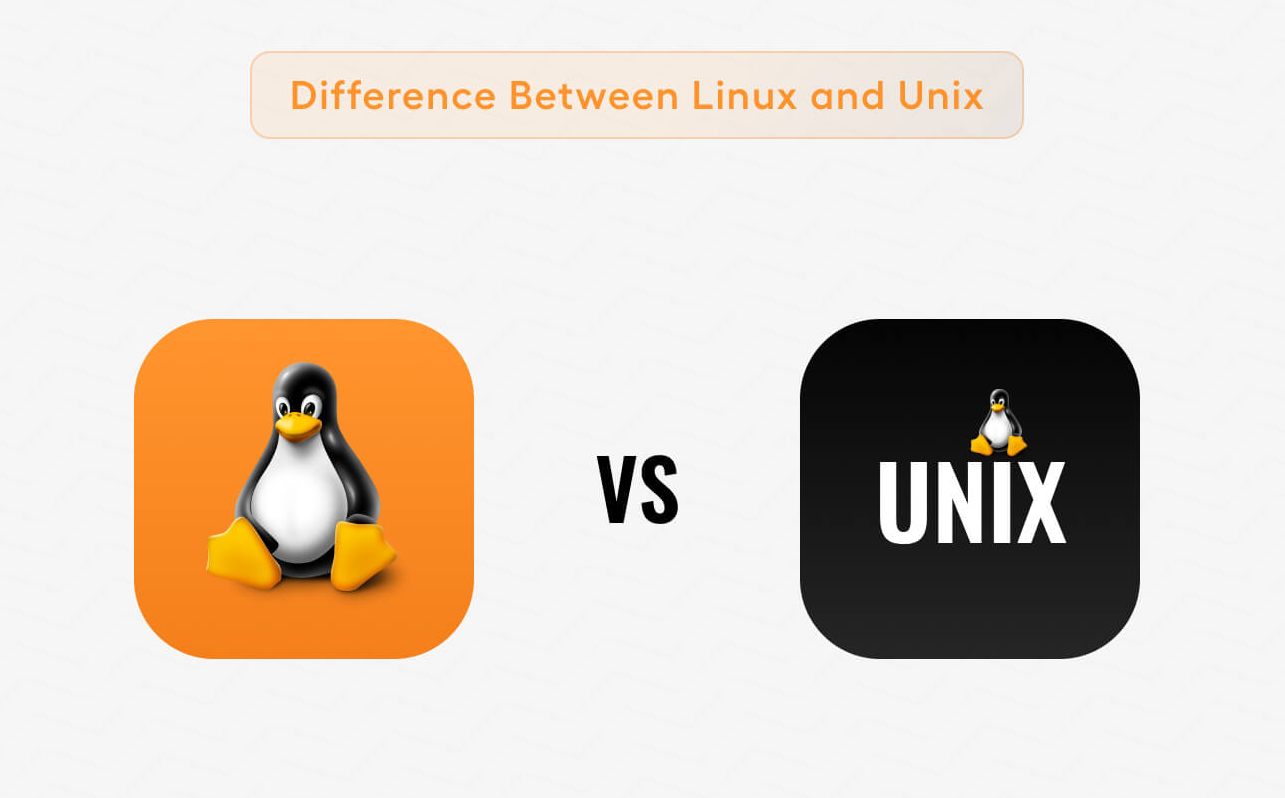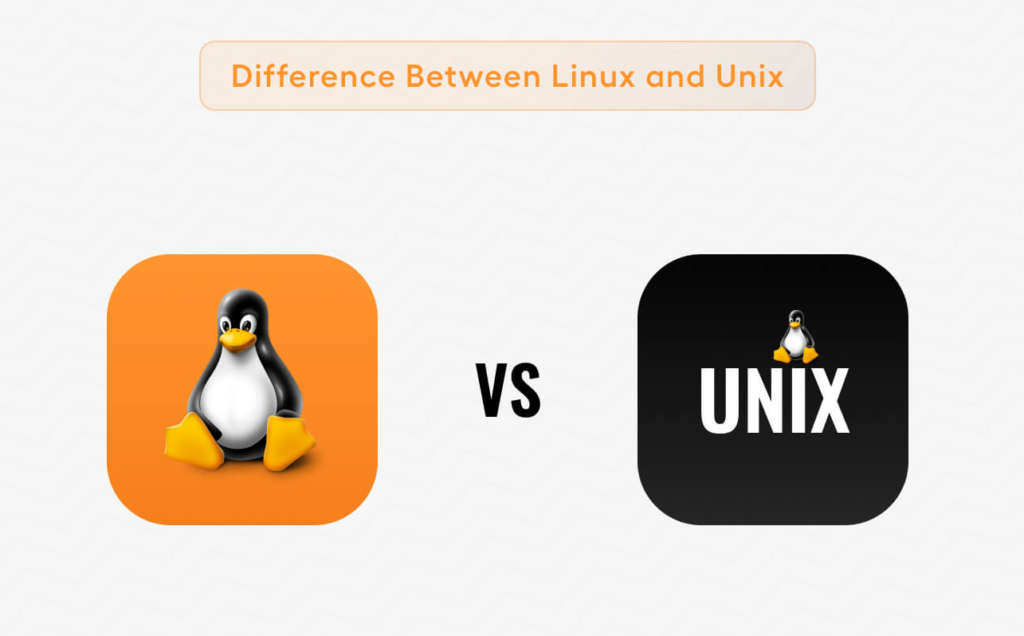Linux and Unix difference: Understanding the Key Differences with Examples
Introduction
When it comes to operating systems, Linux and Unix difference is a common topic of discussion. Both systems have played a crucial role in the development of modern computing. While they share many similarities, they also have significant differences. Understanding these differences can help users choose the best operating system for their needs. This article will also explore the difference between Linux and Unix with examples, difference between Unix and Linux commands, and even compare them with Windows.

What is Unix?
Unix was developed in the late 1960s at AT&T’s Bell Labs by Ken Thompson, Dennis Ritchie, and others. It was initially designed as a multi-user, multitasking system for mainframes and minicomputers. Over time, Unix evolved into various proprietary versions maintained by different companies.
Key Features of Unix
- Multi-user and multitasking capabilities
- Stability and reliability
- Hierarchical file system
- Strong security features
- Command-line interface (CLI) support
Different Versions of Unix
There are multiple versions of Unix, including:
- IBM AIX
- HP-UX
- Solaris (Oracle Unix)
- BSD (Berkeley Software Distribution)
What is Linux?
Linux was created in 1991 by Linus Torvalds as a free and open-source alternative to Unix. It is based on the Unix architecture but developed independently. Unlike Unix, Linux is open-source, allowing developers worldwide to contribute and improve its functionality.

Key Features of Linux
- Free and open-source
- Highly customizable
- Large community support
- Supports various hardware platforms
- Secure and stable
Popular Linux Distributions
Some of the most widely used Linux distributions include:
- Ubuntu
- Debian
- Fedora
- Red Hat Enterprise Linux (RHEL)
- Arch Linux
A common question asked is: Is Ubuntu Linux or Unix? The answer is that Ubuntu is a Linux distribution, meaning it is based on the Linux kernel and follows the Linux philosophy.
Key Differences Between Linux and Unix
Comparison Table: Linux vs. Unix
To help you quickly grasp the Linux and Unix difference, here’s a comparison table:
| Feature | Linux | Unix |
|---|---|---|
| Cost & Licensing | Open-source, mostly free | Proprietary, requires licensing |
| Source Code | Available to everyone | Closed-source, controlled by vendors |
| Usage & Popularity | Widely used in personal computing, servers, and cloud | Mostly used in enterprise and mainframes |
| Security & Stability | Secure and frequently updated | Highly stable with vendor-controlled updates |
| Compatibility & Portability | Runs on various hardware platforms | Limited to specific hardware |
| File System Support | Supports ext4, Btrfs, XFS, etc. | Uses traditional Unix file systems |
| Commands & Shells | More shell options like Bash, Zsh | Limited to vendor-specific shells |
| Performance & Scalability | Ideal for cloud computing and enterprise servers | Optimized for high-performance tasks |
| Community Support | Large open-source community | Vendor-specific support |
This table should make it easier to compare Unix to Linux at a glance.
Difference Between Linux, Unix, and Windows
A major topic of discussion is the difference between Linux and Unix and Windows. While Linux and Unix share many features, Windows is a completely different operating system.
| Feature | Linux | Unix | Windows |
| Cost | Free & open-source | Proprietary | Paid licensing |
| Security | Highly secure, open-source patches | Secure, but proprietary | Frequent security vulnerabilities |
| Usage | Servers, desktops, IoT devices | Enterprise and high-end computing | Personal and business use |
| Customization | Highly customizable | Limited customization | Very limited customization |
| Commands | Uses Bash, Zsh | Uses vendor-specific shells | Uses PowerShell, CMD |
Difference Between Linux and Unix Commands
The difference between Unix and Linux commands is minimal since Linux was designed based on Unix. However, Linux provides additional modern utilities, while Unix relies on traditional commands.
Common Unix Commands:
ls– List directory contentscd– Change directorycat– Display file contentschmod– Change file permissions
Common Linux Commands:
ls -lh– List directory with human-readable sizesapt-get update– Update package lists (Debian-based systems)yum install– Install packages (RHEL-based systems)sudo– Execute commands as another user (typically root)
For those looking for Linux and Unix commands, these are just a few examples.
Similarities Between Linux and Unix
Despite their differences, Unix and Linux share many common characteristics:
- Both are multi-user and multitasking operating systems.
- They use similar command-line tools and utilities.
- A hierarchical file system is used for organizing data.
- Both have strong security features, making them ideal for enterprise environments.
- Unix and Linux are widely used in server environments, research fields, and professional IT infrastructures.
Which One Should You Choose?
Choosing between Unix and Linux depends on your specific needs. If you require a highly stable, vendor-supported operating system for mission-critical applications, Unix might be the best choice. Large enterprises and financial institutions often rely on Unix due to its robust security and reliability.
On the other hand, if you prefer a flexible, cost-effective, and widely supported operating system, Linux is the way to go. Linux’s open-source nature makes it suitable for personal use, cloud computing, web hosting, and software development.
Conclusion
Linux and Unix have their own strengths and weaknesses. While Unix remains a solid choice for enterprise environments, Linux has taken over in terms of flexibility, cost-effectiveness, and widespread adoption. Understanding these differences can help you make an informed decision about which OS suits your needs best.
Read more blog post : Techbulletin
Is Linux better than Unix?
It depends on the use case. Linux is more flexible and cost-effective, while Unix is preferred for high-end enterprise applications.
Can I run Unix programs on Linux?
Many Unix programs can run on Linux with compatibility layers like WSL or software like Wine.
Why is Linux more popular than Unix?
Linux’s open-source nature, strong community support, and adaptability have made it more popular.
Is macOS Unix or Linux?
macOS is based on BSD Unix and is certified as a Unix operating system.


